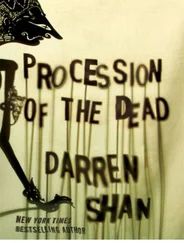Simon Leys
The Death of Napoleon
SIMON LEYS (1935–2014) was the pen name of Pierre Ryckmans, who was born in Belgium and settled in Australia in 1970. He taught Chinese literature at the Australian National University and was Professor of Chinese Studies at the University of Sydney from 1987 to 1993. Leys was a contributor to such publications as The New York Review of Books, Le Monde , and Le Figaro Littéraire , writing on literature and contemporary China. Among his books are Chinese Shadows, Other People’s Thoughts, and The Wreck of the Batavia & Prosper . In addition to The Death of Napoleon NYRB publishes The Hall of Uselessness , a collection of essays, and On the Abolition of All Political Parties , an essay by Simone Weil that Leys translated and edited. His many awards include the Prix Renaudot, the Prix Femina, the Prix Guizot, and the Christina Stead Prize for Fiction.
PATRICIA CLANCY has received several translation prizes, including the British Independent Prize for Foreign Fiction for her co-translation of The Death of Napoleon and the Scott Moncrieff Prize for her 1999 translation of The Black Room at Longwood: Napoleon’s Exile on Saint Helena by Jean-Paul Kauffmann.
What a pity to see a mind as great as Napoleon’s devoted to trivial things such as empires, historic events, the thundering of cannons and of men; he believed in glory, in posterity, in Caesar; nations in turmoil and other trifles absorbed all his attention. . How could he fail to see that what really mattered was something else entirely?
— PAUL VALÉRY, Mauvaises Pensées et Autres
I. A SUNRISE ON THE ATLANTIC
AS HE BORE a vague resemblance to the Emperor, the sailors on board the Hermann-Augustus Stoeffer had nicknamed him Napoleon. And so, for convenience, that is what we shall call him.
Besides, he was Napoleon.
How the Emperor’s escape from St. Helena eventually succeeded during the last stage of an extraordinarily ingenious plot is a story that has already been narrated elsewhere (see “The Prisoner of St. Helena” in Fireside Stories, June/ July 1904). Suffice it to recall here the main outline of the stratagem: a humble and loyal sergeant who, in the past, had often served as a double of the Emperor was dropped on a beach of St. Helena one moonless night; simultaneously, Napoleon boarded a Portuguese seal-hunting lugger that had been chartered for this daring venture.
For the English jailers (as well as for the rest of the world) the next day was very much like any other day. Napoleon got up at the usual time, drank his customary chocolat, played (and cheated) at patience, and took his constitutional according to daily routine. Except for a tiny handful of devoted servants who were involved in the conspiracy, no one knew that these various activities were being performed by a double, and that the genuine Napoleon was sailing on the sealer that was to bring him a few weeks later to the island of Tristan da Cunha — a desolate rock, uninhabited except for a few penguins and other wretched natives whose description we shall spare the reader.
From Tristan da Cunha, he was given a berth on a crayfish schooner bound for Cape Town. At no stage of his journey was anything left to his initiative; every move had been minutely planned for him, and each time he was notified of it at the last moment, by a series of anonymous agents, themselves mere cogs that fitted blindly into a huge, mysterious machine. This second leg of the journey had been long and rough. He was traveling under the name of Eugène Lenormand; at the time, however, his assumed identity had little practical use: the crew of the schooner was made up of Norwegians who would never have considered speaking to him. This attitude did not reflect any ill will on their part — they were no more talkative among themselves — the fact is, after years of seafaring, these Scandinavian mutes had lost all aptitude for social intercourse. As a result, the resemblance — somewhat vague yet still discernible — which the newcomer presented to the hero who had shaken Europe and the world was not likely to provoke any embarrassing curiosity. And anyway, the only crowned head that was faintly familiar to the crew was that of a Danish king whose lithographic portrait was yellowing on the bulkhead in the forecastle.
Now, however, on the third and last leg of his journey, the situation had entirely changed. On board the Hermann-Augustus Stoeffer —the brig that was at last carrying him back to France — the sailors were a fairly sophisticated collection of cosmopolitan scoundrels. They were not entirely devoid of culture générale : what is more, the boatswain was a Frenchman who had served on the Egyptian expedition and persisted in professing his Bonapartist religion. Yet, of all the crew, he would have been the most reluctant to acknowledge that there could be the slightest resemblance between his god and the new cabin hand (for it was in this capacity that Napoleon appeared on the roll).
It all began with a cheeky remark from the ship’s boy.
One morning, as the boy had to carry astern the officers’ breakfast trays, he called out to the cabin hand to come and help him. As the latter remained lost in his perpetual daydreams, the boy, who was observant and not without wit, finally shouted, “Ahoy! Napoleon!”
The effect far exceeded his expectations. The man leaped to his feet as if lashed with a whip. For a fraction of a second, his eyes lit up with the fearsome intensity of a wild animal caught in a trap. Although the boy was still young, life at sea and the rough company of the crew had already endowed him with a fair dose of cynicism; therefore, Eugène’s brief metamorphosis did not overly impress him — he merely noted what appeared to be a fairly efficient method of bringing the cabin hand back to earth. As, in his daily chores, he frequently needed the other’s assistance, he found the use of this new nickname very expedient.
The rest of the crew, continually hearing “Napoleon!” here, “Napoleon!” there, eventually ratified the vague resemblance there might have been between the cabin hand and the prisoner of St. Helena; thus, for everyone in the forecastle, he became Napoleon from then on.
The boatswain alone found the joke to be in very poor taste. That any form of association could be established between his idol and this ugly little man, with his potbelly and knotty knees, was sacrilege to him. It must also be said that Napoleon had aged considerably over the last few years; he had lost most of his hair and, to protect his head from the cold sea wind, had taken to wearing a woolen cap which his landlady on Tristan da Cunha had knitted for him in a mixture of gaudy colors. This comfortable but slightly ridiculous hat added the last touch to a silhouette the very sight of which was enough to irritate the boatswain.
The latter’s exasperation was further exacerbated by the seeds of irritation repeatedly sown by the supercargo — an insolent young man, the son of a Birmingham solicitor, who had been banished to the high seas, having impregnated a parson’s daughter. This odious Englishman, knowing the boatswain’s devotion to the Bonapartist cause, took a perverse delight in addressing the wretched cabin hand with mock courtesy as “Monsieur de Buonaparte” whenever the boatswain was within earshot.
These indirect insults to his idol filled the boatswain with a rage which he usually vented upon the unfortunate Eugène. There were plenty of opportunities, for the cabin hand, being no good at anything, was obliged to do everything — there was no mindless, humiliating, or dirty task that did not eventually fall on his shoulders. Even the ship’s boy had the cheek to unload some of his duties onto him.
Читать дальше












